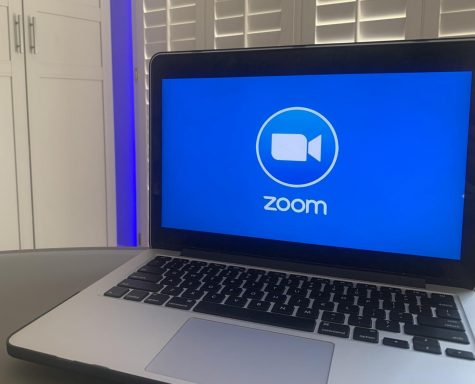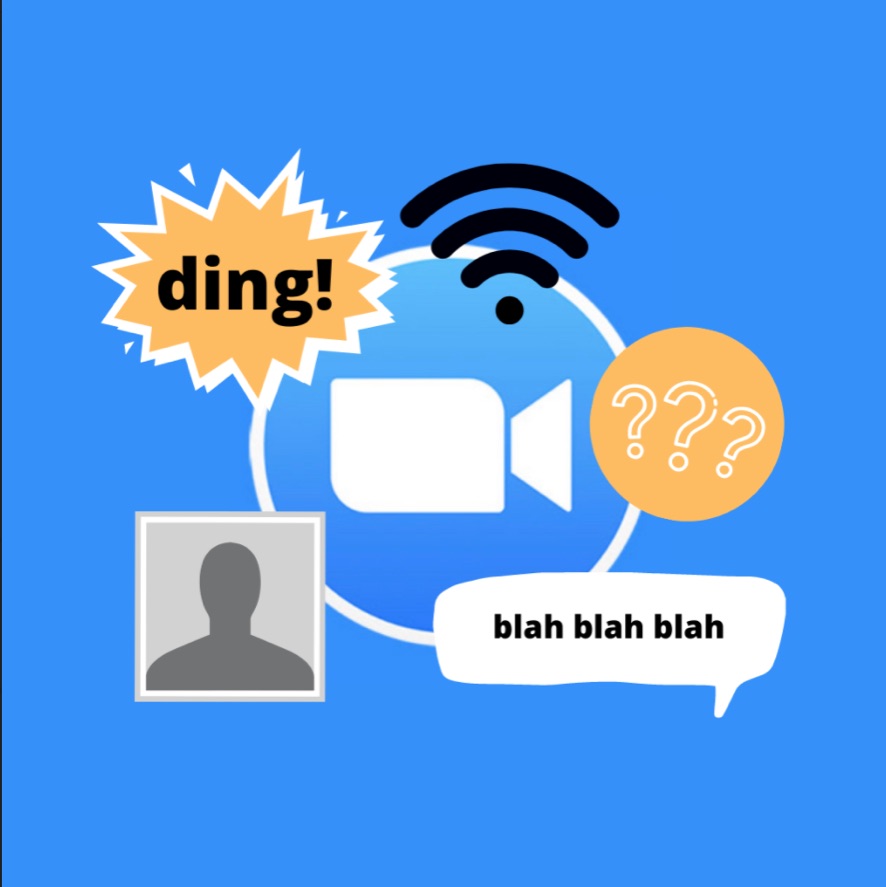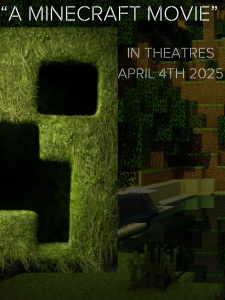Zoom sabotages are the new classroom disruption
Online schooling is filled with disruptions. This includes things like cellphones, bad wifi, and zoom sabotages from disruptive students. Photo by: Greta Pankratz
October 27, 2020
VHS students share their experiences with Zoom class disruptions.
The average high school classroom has its share of jokes and disruptions, but they seem to be following students through the switch to online learning. Due to the new virtual platform, people can now hide behind turned off cameras and, in more severe cases, even fake names. Responsibility can be hard to assign, and therefore punishment doesn’t pose as great of a threat as before. Not only this, but because teachers are still navigating the new virtual world, their classes are vulnerable to security issues.
Disruptions can be anything from personal obstacles, such as a cell phone or siblings, slow technology, or even zoom sabotages from troublesome students. Zoom sabotages can include students who join a class they don’t belong to, or even just disruptive kids on their own zooms. By blurting out inappropriate words or noises, the interruptions waste time and make the other students and teachers feel uncomfortable. Although it’s hard to expect complete focus from students at all times, junior Tess Luoma described the difference as, “When someone is obviously on their phone or talking to someone or always has their camera off, I think that’s rude. Being on your phone sometimes is ok, but when it’s out in the open or interrupting the teachers that’s not the best.” After staring at a screen day after day, losing interest in zooms isn’t uncommon. In a rating scale posted on the Cougar Press Instagram on Oct. 6, 2020, the question “Do you ever find it difficult to take zooms seriously?” was asked with the levels of “nope,” “sometimes,” and “definitely.” Out of 139 VHS student responses, the average result was directly between sometimes and definitely. While this doesn’t necessarily mean a complete loss of respect for the Zoom class, it can be inferred that small at-home distractions are prevalent. Senior Jordan Wagoner even commented, “I think it’s funny when kids just join the call and go back to sleep.” The simplicity of turning the mic and camera off allows for this level of zoning out. While not directly harmful to the teacher and classmates, tempting opportunities like this could potentially be damaging to students’ grades and understanding.
As many students may have experienced, poor connection can play a large role in feeling disconnected from the class and teacher. Being too glitchy to speak, not being able to hear, or watching a lagging screen share are all factors that can lead to frustration and a lack of motivation. Sophomore Carlos Garcia-Benitez expressed, “In zoom, I’ve been kicked out of meetings due to my internet connection. I once had a presentation on google slides and when it was my turn, I was on mute for the first two slides I presented.” Wagoner has experienced similar technological obstacles. When asked what problems she has faced, she said, “When zoom went down and all of the teachers had to use google meets, or when my Spanish teacher got kicked from the call and one of the students was the head of the call.” Disruptions like these are issues that students have never had to deal with during in-person learning, and they may be a factor in why students have trouble taking zoom classes as seriously as traditional school.

A distraction that seems to have adapted to fit online learning is disruptive students. Kids can hide behind a grey screen and act out before a teacher has the chance to kick them out. Gwendolyn Neger, a junior, stated how she felt, “It’s pretty immature but I guess people are bored and want to have some ‘fun.’ I experienced disruptions from a few boys that thought it was funny to talk, make noises, and shout inappropriate things in the middle of math class. These boys were especially rude to one of the girls in my class that was just trying to learn.” It has come to the point where classes are not only being interrupted, but students and teachers are being harassed with crude language. Luoma, who had experienced being called out directly, described, “Whenever someone hacks into the zoom meetings they make inappropriate noises and cuss. It’s so rude and there’s no point to it. In both the junior counselor meeting and my Spanish class the same person interrupted, but in Spanish even called me out inappropriately. He was using fake names of the students that were missing to get in. He listened through attendance and once he got kicked out, tried to come back in as one of the absent kids.” People who do things like this are determined to cause a scene. They go to the extent of using fake names that they know will work just for the purpose of disrupting the class. The teachers, who already have a limited time each week with their students, must then take their focus off of teaching and instead worry about the security of their class.
In an attempt to stop outside hackings, Ventura Unified School District took the step to allow only Venturaedu email accounts to access our school zooms. Garcia-Benitez commented, “I think the school did a good job with having students log into zoom with our school emails.” However, although this protects from outsiders, it doesn’t stop kids from messing around. With our current online abilities, it would be difficult to stop these attacks. With a VUSD account and a zoom meeting password and ID, there isn’t much that can stop those with a troublesome agenda. As Luoma explained, “I don’t really think there is a way to prevent it because even if teachers change the code, students will still leak it.” In addition to this, the simplicity of staying anonymous has lessened the threat of punishment, not only for the sabotager, but for those who leak the codes as well. “I don’t think it’s easy to punish someone for letting a random person into a call because you don’t know what student sent out the ID,” explained Wagoner. With our current system, teachers just have to rely on kicking the students out.
Fully online schooling is a system that is different from what most VHS students have experienced. Because it isn’t what kids usually associate with learning, it may not feel official or very serious yet. It will take time to adapt, and the second things start to click, we could be switching into a new hybrid system. High school students right now are learning in an environment unique to one that has ever existed before. There are bound to be issues because it is a learning process for everyone. The school asks the students to cooperate, and in return students rely on the board to make decisions with their interests in mind. Our system, for the time being, isn’t perfect, but in order for it to be its best, it takes respectful students and understanding teachers. Effort must be seen from both sides if we ever wish to return.










